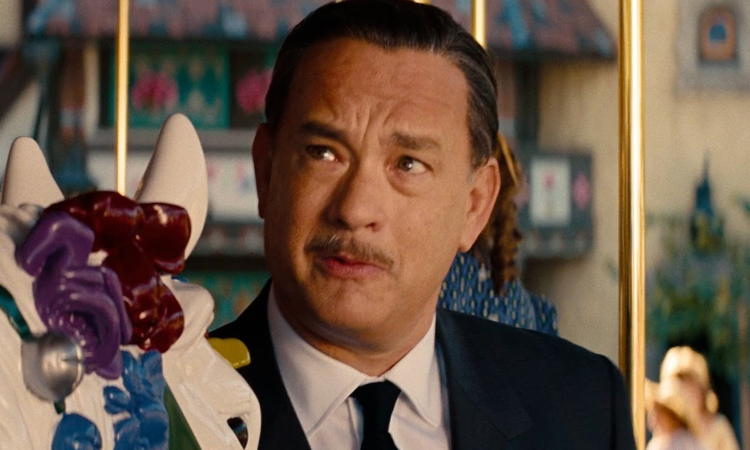By Brock Wilbur · November 12, 2013

Saving Mr. Banks is a film that shouldn't exist. If there is anything the Disney brand prides itself on, it is the idea of distancing its image from the business of entertainment, keeping the fiscal and mechanical at bay. So to see a family friendly version of Adaptation… that's unexpected.
In 1961, P.L. Travers traveled to Los Angeles to discuss the production of a film based on her Mary Poppins book series with Walt Disney, concluding a twenty-year back-and-forth instigated by a promise from Disney to his children that he would adapt the book into a film. Travers did not believe a film could properly translate a character with whom she felt familial connections and Walt Disney believed in the power of cinema, and therein lies the central dispute of Banks.
The spoiler alert is that Mary Poppins wound up being produced as a film. The process, vicious though it was, has been captured via reel-to-reel recording and recreated for us. Here's the breakdown of the awesome and the lesser awesome.
AWESOME:
Emma Thompson as P.L. Travers is world-destroyingly brilliant. The character is flawed, and depending on your perspective, brutally mentally damaged. It is the role of a lifetime, and it is painstaking to behold, in that it literally hurts to watch but you feel privileged for having witnessed it.
The writing/music team behind the Disney adaptation features Bradley Whitford (my favorite everything ever), and B.J Novak and Jason Schwartzman as the icon Sherman & Sherman. Combined with Melanie Paxson as the production secretary, their scenes together are the highlight of the film.
Colin Farrell plays Travers' father in the flashbacks to her youth, which are plentiful. In fact, they make a solid half of the film. Farrell is the man who lived an exaggerated life and damaged his family with an impossible love. It is beautiful, tragic, and he never oversells the easily over-sellable. He is the hidden star of this film.
THE LESSER AWESOME:
Tom Hanks as Walt Disney. From the start this has been a point of contention as much of what remains of Disney's legacy includes the burden of his political and racial beliefs. The good is that Tom Hanks is the troubled, layered, less than perfect Walt that brings a reality that Disney isn't known for. The reversal is that this is a better portrayal of Walt than the man probably deserves.
Paul Giamatti plays Travers' limo driver and is not entirely wasted, but why are we still having him play the simple smuck character?
The hardest part of the film is dealing with the propaganda of Disney, and separating the marketing from the historical placement, i.e. what is the Disney I can enjoy vs. the Disney that is being forced on me. The idea of selling out to Disney (in this Disney produced film) is personified in a life-sized Mickey Mouse doll left in Travers' hotel room with whom she interacts. I'm not sure if I'm just excessively coded from Escape From Tomorrow but the evil of the corporation still seems overpowering. The film toys with acknowledging Travers' ultimate disappointment in the film, but washes them away with the tears of a grateful daughter, not a grateful creator.
THE RUN DOWN:
Saving Mr. Banks is going to win awards, and deservedly so. The best compliment I can give, on top of the incredible performances, is that Disney was anti-Disney more than it needed to be, and it is appreciated because it lends a realism whose absence I was prepared for. Thompson does the highlight of a career, and the Whitford/Novak/Schwartzman combo is a dream team. In all, it gives perspective to the creative process in a manner that has rarely be allowed such a mainstream view. It asks you not to ignore that man behind the curtain, and I applaud the very idea of mainstream cinema acknowledging this process. I wish I'd had a film like this as a kid to prepare me for the business of the nightmare ahead, much less one that made it so appealing.